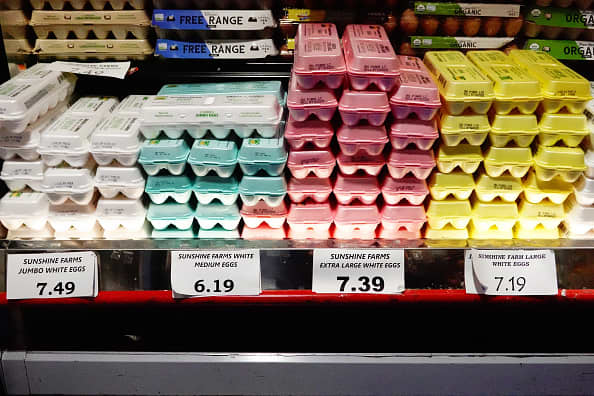
Italy is setting up a public and private fund to boost key parts of its economy.
Sopa Images | Lightrocket | Getty Images
Italy is moving ahead with a sovereign fund to support critical parts of its economy, amid a wider push by several European nations to bring global supply chains closer to home.
Italy’s Minister of Enterprises Adolfo Urso announced Wednesday a public-private fund that looks at consolidating “national strategic supply chains” in the areas of raw materials and energy. A diplomatic source in Italy confirmed to CNBC that only high-potential or systemically relevant firms will receive funding. They added that this plan is expected to pass through Parliament before the end of the year.
The announcement comes after Ireland, another EU nation, said earlier this month that it intends to start a sovereign wealth fund next year. This would be capitalized by windfall tax receipts and target long-term costs such as pensions and infrastructure.
France, the second largest euro area economy, earlier this month also presented a plan for an investment fund for critical metals. More broadly, these announcements follow a trend in Europe where nations are aiming to reduce their dependency from other countries, like China.
“This is a response to growing international competition over critical resources and supply chains,” Federico Santi, a senior analyst at political consultancy Eurasia Group, told CNBC via email.
“The pandemic first and later the war in Ukraine and resulting energy crisis have laid bare how supply chains are vulnerable to political and geopolitical shifts. At the same time, massive investment in the green transition and related technologies has increased the need for critical resources,” he said.
Italy established a wealth fund back in 2011 which has investments in energy, communications and aerospace sectors. The latest plan for a separate fund reinforces the idea that Rome is trying to boost its industrial policy.
When Covid-19 hit in early 2020, many European nations struggled to get their hands on masks and other protective equipment, which were manufactured in Asia. More broadly, multinationals that had their supply chains spread across the world struggled to continue their assembly lines and many products became more expensive as a result.
Russia’s invasion of Ukraine disrupted further sectors, most notably agricultural goods and fertilizers.
Strategic autonomy
French President Emmanuel Macron has long been an advocate of strategic autonomy — the idea that European nations need to reduce their dependency on countries outside the region. The concept has gained more and more traction with recent crises, and Macron went a step further in April when pushing for less reliance on the United States, a long-standing ally.
Macron warned about Europeans being caught in crises that are not of their making, citing U.S. and China’s views on Taiwan as an example.
His comments raised criticism in some European capitals, which are more conscious of America’s security support. But Charles Michel, the president of the European Council who chairs regular talks among EU leaders, said there is growing support for Macron’s thinking. Michel told Politico that while Macron spoke as the French president, his views reflect a growing shift among EU leaders.
The topic will be in focus when the 27 heads of state gather in June and debate how to develop a new relationship with China that’s different from that of the United States. Whereas the U.S. administration has looked at de-coupling from Beijing, separating their economies, the Europeans are developing ways to reduce their dependency on China but not cut ties aggressively.

